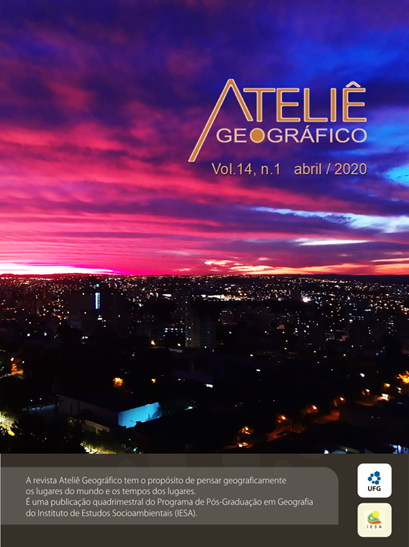Interfaces between rural education and agroecology in rural settlement areas in the state of Paraná
DOI:
https://doi.org/10.5216/ag.v14i1.56336Abstract
This work questions the relationship between rural education and agroecology in rural settlement areas linked to the Brazilian Landless Workers’ Movement (MST). It starts off from the assumption that agroecology, as a productive matrix spread by the MST, strengthens and increases the perspective of emancipatory rural education, which values individuals’ knowledge and lifestyle, besides its contribution to their continuity in the countryside. Thus, the school takes a main role in the process of formal education and becomes a privileged space to study the contradictions within the Brazilian rural context, as well as the dissemination of agroecology principles. The school, however, is unable to ensure this education if it does not follow the movement from the reality in which it takes part. Therefore, supported by literature review, documental analyses, interviews and in loco observations, this text presents an analysis of agroecological actions developed in two rural schools located in rural settlement areas in the State of Paraná by contextualizing the progresses and limitations of its pedagogical practices.
Keywords: Rural Education; Agroecology; Rural Settlement.
Downloads
Downloads
Published
How to Cite
Issue
Section
License
Autores que publicam nesta revista concordam com os seguintes termos:- Autores mantém os direitos autorais e concedem à revista o direito de primeira publicação, com o trabalho simultaneamente licenciado sob a Licença Creative Commons Attribution que permite o compartilhamento do trabalho com reconhecimento da autoria e publicação inicial nesta revista.
- Os autores não serão remunerados pela publicação de trabalhos na Revista Ateliê Geográfico. Além disso, os conteúdos publicados são de inteira e exclusiva responsabilidade de seus autores, ainda que reservado aos editores o direito de proceder a ajustes textuais e de adequação às normas da publicação.
- Autores têm permissão e são estimulados a divulgar seu trabalho online (ex.: em repositórios institucionais ou na sua página pessoal), já que isso pode gerar alterações produtivas, bem como aumentar o impacto e a citação do trabalho publicado (Veja O Efeito do Acesso Livre).


